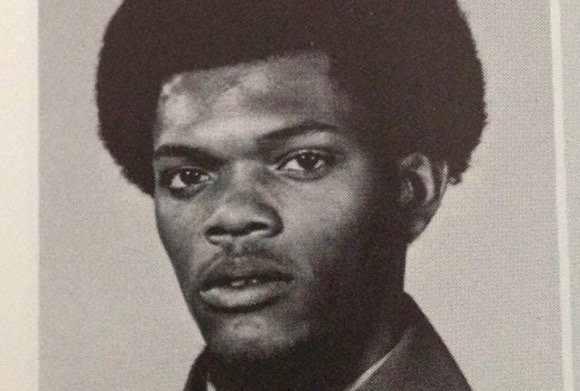Samuel L. Jackson Explains How He Became An Usher At MLK’s Funeral

As the country marks the 50th anniversary of Dr. Martin Luther King’s assassination, Samuel L. Jackson has revealed that he served as an usher at the funeral for the civil rights leader in Atlanta.
Jackson, 69, was a sophomore at Morehouse College in Atlanta when Dr. King was assassinated April 4, 1968, in Memphis, Tennessee. Four days later, he participated in a march in Memphis to continue King’s work supporting a garbage workers’ strike.
In a guest column for The Hollywood Reporter, Jackson explains the turn of events that led to him serving as an usher at King’s April 9 funeral, how the tragedy propelled him into activism and why he staged a lock-in that got him expelled from college.
Below, Jackson in his own words, via THR:
When I first heard, I was actually in the liquor store buying a quart of beer, because it was campus movie night. The cashier said, “Dr. King got shot.” I said, “Is he dead?” And he said, “No, not yet.”
I went to the movie — it was John Goldfarb, Please Come Home. That’s the only reason I remember that movie. In the middle of it, this guy came in and said that Dr. King was dead and we need to do something. Everybody left. I went back to my dorm and couldn’t find my roommate. Came to find out he was already in the streets with a whole bunch of other people, tearing up and burning up our neighborhood.
Jackson soon jumped into campus politics, eventually joining a spring 1969 protest — in which he and others held Morehouse trustees hostage — that got him expelled for two years. On the 50th anniversary of the assassination, the 69-year-old star recalls those tumultuous, tragic days.
A couple of days later, these guys told us Bill Cosby and Robert Culp wanted us to get on a plane with them and fly to Memphis to march with the garbage workers. There was a lot of anger on the plane. We didn’t know what to expect when we got to Memphis. We all thought it was probably going to be something physical, even though the National Guard was there. Culp and Cosby were trying to give us instructions on how to carry ourselves and enact King’s dream of being nonviolent.
It was cool that they’d take us to Memphis and foot the bill for it. We weren’t thinking of it in any historical context, but we were glad there was something we could do other than burn, loot and destroy our own neighborhood. That we could do something that’s going to make these people’s lives better. Especially knowing that King was killed for something as simple as, in that moment, a garbagemen’s strike.
We flew back that night and went to Sisters Chapel at Spelman College, where Dr. King was lying in state. The next day was the funeral. They needed volunteers to help people find their way around campus, and I became an usher. I remember Mahalia Jackson singing. I’d been listening to her all my life, so it was great to hear her sing “Precious Lord, Take My Hand” live. I remember seeing people like Harry Belafonte and Sidney Poitier. People that I thought I’d never see, let alone have a relationship with later on in life. The funeral was pretty much a blur.
Jackson soon jumped into campus politics, eventually joining a spring 1969 protest — in which he and others held Morehouse trustees hostage — that got him expelled for two years.
Read Jackson’s full column at THR here.
PHOTO: Morehouse
READ MORE STORIES ON BLACKAMERICAWEB.COM:
- Love Island USA Season 7 Finale: Amaya and Bryan Crowned Champions
- Unreleased Beyoncé Music Stolen in ATL Before Show Kickoff
- Elmo’s X Account Hacked: Racist Posts Spark Outrage
GET THE HOTTEST STORIES STRAIGHT TO YOUR INBOX:
















